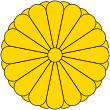This page is based on this
Wikipedia article Text is available under the
CC BY-SA 4.0 license; additional terms may apply.
Images, videos and audio are available under their respective licenses.

The Federal Council is the seven-member executive council that constitutes the federal government of the Swiss Confederation and serves as the collective head of state and of government of Switzerland.

The Liberal Party of the Philippines or LP is a liberal political party in the Philippines, founded by then senators Senate President Manuel Roxas, Senate President Pro-Tempore Elpidio Quirino, and former 9th Senatorial District Senator José Avelino, on January 19, 1946 by a breakaway Liberal wing from the old Nacionalista Party. It was the ruling party from 2010 to 2016 after the election victory of Benigno Aquino III as the President of the Philippines. Today, the Liberals are the opposition and maintain at least five seats in the Senate, and at least 41 of seats in the House of Representatives. Around 50% of governors, 50% of vice governors, and 33% of board members are also Liberals.

Philippine elections are of several types. The president, vice-president, and the senators are elected for a six-year term, while the members of the House of Representatives, governors, vice-governors, members of the Sangguniang Panlalawigan, mayors, vice-mayors, members of the Sangguniang Panlungsod/members of the Sangguniang Bayan, barangay officials, and the members of the Sangguniang Kabataan are elected to serve for a three-year term.

The Vice President of Nigeria is the second-in-command to the President of Nigeria in the Government of Nigeria. Officially styled Vice President of the Federal Republic of Nigeria, the Vice President is elected alongside the President in national elections. The office is currently held by Yemi Osinbajo.

The Senate is the upper house of the Parliament of Cambodia. It is a legislative body composed of 62 members. Fifty-eight of the Senate seats are elected every six years by the commune councillors from 24 provinces of Cambodia and members of the National Assembly. In addition, the King nominates two Senators, and the National Assembly nominates two, ending with a total of 62 Senators. The Senate performs its duties as determined in the constitution and law in force. The Senate is chaired and presided by the President, currently Say Chhum of the Cambodian People's Party and assisted by two Vice Presidents.
Wakako Hironaka is a Japanese writer and politician. She served four terms in the House of Councillors, the upper house of the national Diet, from 1986 until 2010. Her husband is Heisuke Hironaka, a mathematician.
Events in the year 1947 in Japan.
A midterm election refers to a type of election where the people can elect their representatives and other subnational officeholders in the middle of the term of the executive. This is usually used to describe elections to a governmental body that are staggered so that the number of offices of that body would not be up for election at the same time. Only a fraction of a body's seats are up for election while others are not until the terms of the next set of members are to expire. The legislators may have the same or longer fixed term of office as the executive, which facilitates an election mid-term of the tenure of the higher office.
In a governmental system, a party leader acts as the official representative of their political party. The party leader is typically responsible for managing the party's relationship with the general public. As such, they will take a leading role in developing and communicating party policy, especially election platforms, to the electorate. They are also typically the public face of the respective party and the principal media contact.

The Conservative and Unionist Party, also known as Northern Ireland Conservatives is a section of the United Kingdom's Conservative Party that operates in Northern Ireland. The party won 0.4% of the vote in the Northern Ireland Assembly election, 2016, and 0.3% of the vote in the Northern Ireland Assembly election, 2017.

Elections for the Japanese House of Councillors were held in Japan on July 12, 1998.

Akira Gunji is a Japanese politician of the Democratic Party and a member of the House of Councillors in the Diet. He is the current Vice President of the House of Councillors.

The Politics of Calabria, Italy takes place in a framework of a presidential representative democracy, whereby the President of Regional Government is the head of government, and of a pluriform multi-party system. Executive power is exercised by the Regional Government. Legislative power is vested in both the government and the Regional Council.

The 23rd Elections to the House of Councillors for the upper house of the National Diet, the legislature of Japan, was held on July 21, 2013. In the last election in 2010, the Democratic Party of Japan (DPJ) remained the largest party, but the DPJ-led ruling coalition lost its majority. The House of Councillors is elected by halves to six year terms. In 2013, the class of Councillors elected in 2007 was up.
The Liberal Party is a political party in Japan. It has 2 out of the 475 seats in the House of Representatives, and 3 in the 242-member House of Councillors. Formed as the People's Life Party in December 2012, it changed its name to People's Life Party & Taro Yamamoto and Friends in December 2014. The party adopted its current name in October 2016 in preparation for an expected general election in early 2017.











